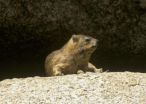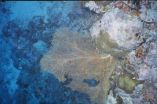(Press-News.org) Eating steamed pears, having a soothing massage or bathing in a herbal mixture are just some of indigenous health practices used by older people to ward off or treat influenza, according to research published in the October issue of the Journal of Advanced Nursing.
Other traditional measures discovered by nurse researchers at the Hong Kong Polytechnic University included being rubbed with a coin, eating cheese, yoghurt and honey and having warm drinks made with ginger or lemon.
The team surveyed nine countries to find out why so many of them were failing to meet the 75 per cent annual influenza vaccination rate recommended by the World Health Organization. They found that people who chose not to be vaccinated were more likely to rely on indigenous health practices - together with good general health and hand hygiene - than those who decided to be vaccinated.
"Annual flu epidemics severely affect three to five million people worldwide every year and cause up to half a million deaths, with most deaths in industrialised countries occurring in people over 65" says co-author Professor Samantha Mei-che Pang from the University's School of Nursing. "That is why it is so important to find out why some older people have the annual flu vaccine, while others decide not to."
The range of countries chosen by the researchers represented different cultures, healthcare financing systems and flu vaccine uptakes. Healthcare is dominated by the private sector in Indonesia and China, while Greece, Turkey and South Korea all operate a national health insurance system. The UK and Canada have national health systems funded by taxation and the health systems in Brazil and Nigeria rely heavily on the private sector.
A series of focus groups were held with vaccinated and unvaccinated older people aged 65 plus and seven countries submitted completed questionnaires providing demographic data on 172 participants. This showed that two-thirds of the people who took part had been vaccinated, with vaccination rates highest in Canada (93 per cent) and lowest in Nigeria (31 per cent). Other countries ranged from 44 per cent to 82 per cent.
The team looked at the attitudes of the vaccinated and unvaccinated people in each group and this provided useful clues about what had influenced their decision.
People made the decision to be vaccinated if they:
Felt existing health conditions made them vulnerable.
Viewed flu as very contagious and dangerous, having experienced complications themselves or seen it in others.
Had experienced no, or minimal, side effects from previous vaccinations and less severe symptoms if they thought they had contracted flu after having the vaccine.
Recognised that the cost of the flu vaccine was lower to health services than the cost of treating someone who had contracted flu.
Didn't want to pass the virus onto other family members, like grandchildren.
Were influenced by what was normal practice in their country and among their circle of friends.
Had easy access to a local centre providing the vaccine.
Received reminders that they should be vaccinated, from healthcare professionals, the media or friends and neighbours.
Were able to afford the vaccine if it was not provided free by their healthcare system.
People who did not have the flu vaccine said they:
Didn't see themselves as vulnerable.
Felt less convinced that the vaccine was effective after negative reports from others about its efficacy and side-effects.
Felt that it was sufficient to take preventative measures, such as leading a healthy lifestyle, with sufficient exercise, a good diet, good hand hygiene, keeping warm and staying away from germs.
Were more likely to trust indigenous health practices, such as special drinks, food or other traditional remedies.
"Our findings support the growing evidence that older people are much more likely to be vaccinated against flu if they feel vulnerable, see flu as a threat and believe that the vaccine will be effective with little, or no, side effects" says Professor Pang.
"It also revealed a finding that we do not believe has been observed in previous studies: that those who distrust the vaccine's effectiveness are more likely to rely on healthy lifestyles, good hand hygiene and indigenous health practices to protect them from flu.
"Cost was also a factor in countries where free healthcare was not available and some people did not have easy access to a local centre offering vaccinations. The importance of providing regular reminders was also important, as was creating a culture where receiving an annual flu vaccine was the norm for older people."
The study, which was funded by the International Council of Nurses, includes further details on each country's participants, together with quotes from the focus groups.
###
Notes to editors
Influenza vaccine preference and uptake among older people in nine countries. Kwong et al. Journal of Advanced Nursing. 6610, pp2297-2308. (October 2010). DOI: 10.1111/j.1365-2648.2010.05397.x
The Journal of Advanced Nursing (JAN) is an international, peer-reviewed, scientific journal. JAN contributes to the advancement of evidence-based nursing, midwifery and healthcare by disseminating high quality research and scholarship of contemporary relevance and with potential to advance knowledge for practice, education, management or policy. www.journalofadvancednursing.com
Wiley-Blackwell is the international scientific, technical, medical, and scholarly publishing business of John Wiley & Sons, with strengths in every major academic and professional field and partnerships with many of the world's leading societies. Wiley-Blackwell publishes nearly 1,500 peer-reviewed journals and 1,500+ new books annually in print and online, as well as databases, major reference works and laboratory protocols. For more information, please visit www.wileyblackwell.com/ or our new online platform, Wiley Online Library (www.wileyonlinelibrary.com/), one of the world's most extensive multidisciplinary collections of online resources, covering life, health, social and physical sciences, and humanities.
END
Winter canola might soon be the crop of choice for Pacific Northwest farmers, thanks to research by U.S. Department of Agriculture (USDA) scientists and their partners. The multitasking annual plant can be used to control weeds, supplement animal feed, produce biodiesel--and spark a new revenue stream for the Colville Confederated Tribes.
Frank Young, an agronomist with USDA's Agricultural Research Service (ARS), was part of a team that evaluated production protocols for winter canola in the Pacific Northwest. ARS is USDA's principal intramural scientific research agency. ...
Scientists at the University of Leicester are using an unusual resource to investigate ancient climates– prehistoric animal urine.
The animal in question is the rock hyrax, a common species in countries such as Namibia and Botswana. They look like large guinea pigs but are actually related to the elephant. Hyraxes use specific locations as communal toilets, some of which have been used by generations of animals for thousands of years. The urine crystallises and builds up in stratified accumulations known as 'middens', providing a previously untapped resource for studying ...
Scientists at the UK's National Physical Laboratory (NPL) have developed a means of representing a 3D model ear, to help redefine the standard for a pinna simulator (the pinna is the outer part of the ear) – used to measure sound in the way we perceive it.
The nature of human hearing is heavily dependent on the shape of the head and torso, and their interaction with sound reaching the ears allows for the perception of location within a 3D sound field.
Head and Torso Simulators (HATS) are designed to model this behaviour, enabling measurements and recordings to be made ...
The metal chromium is an essential nutrient for plant and animal metabolism, but it can accumulate to toxic and hazardous levels in the environment when discharged in industrial waste water; a point made infamous by the movie Erin Brockovich.
Chromium-contaminated wastewaters usually originate from dye and pigment manufacturing, wood preserving, electroplating and leather tanning. The element can exist in water as charged particles in one of two states, oxidation state 3+ (trivalent form) and 6+ (the hexavalent form usually exists as chromate or dichromate). Other oxidation ...
Having a family history of breast cancer can lead some women to wonder if the risk is out of their control. However, a study of more than 85,000 postmenopausal women, published in BioMed Central's open access journal Breast Cancer Research, observed that regular physical activity, maintaining a healthy weight, and drinking less alcohol lowers breast cancer risk for those with and without a family history of the disease.
The University of Rochester Medical Center study is good news for women who have a close relative with breast cancer and fear that no matter what they ...
COLUMBUS, Ohio -- A giant star in a faraway galaxy recently ended its life with a dust-shrouded whimper instead of the more typical bang.
Ohio State University researchers suspect that this odd event -- the first one of its kind ever viewed by astronomers – was more common early in the universe.
It also hints at what we would see if the brightest star system in our galaxy became a supernova.
In a paper published online in the Astrophysical Journal, Christopher Kochanek, a professor of astronomy at Ohio State, and his colleagues describe how the supernova appeared ...
Direct-to-consumer personal genetic profiling services that claim to predict people's health risks by analysing their DNA are often inconclusive and companies that sell them should provide better information about the evidence on which the results are based, says the UK Nuffield Council on Bioethics, in a new report on the ethics of so-called personalised healthcare services.
The report says that claims that these services are leading to a new era of 'personalised healthcare' are overstated and should be treated with caution. The Council recommends that regulators of ...
COLUMBUS, Ohio – Researchers looking at corals in the western tropical Pacific Ocean have found records linking a profound shift in the depth of the division between warm surface water and colder, deeper water traceable to recent global warming.
The finding is the first real evidence supporting what climate modelers have been predicting as the effects of global climate change on the subsurface ocean circulation.
The report by researchers from Ohio State University and the University of Toronto was published in the latest online edition of the journal Geophysical Research ...
Goods trains move at night because during daytime the Swiss rail system is used to full capacity by passenger traffic. Unfortunately, it is goods trains which make the most noise – and they operate at exactly the time when most people want to sleep. If the policy of shifting goods transport from the roads to the rail network is to succeed, then goods trains must be made significantly quieter.
The Swiss Federal Office for the Environment (FOEN) therefore tasked a team of scientists, headed by Kurt Eggenschwiler of Empa's Acoustics and Noise Control Laboratory, with the ...
Researchers used Einstein's famous E=mc2 equation and the Large Hadron Collider to recreate a miniature version of the event at the origins of our Universe, and the first findings from their work were published in the journal Physical Review Letters. Dr. Andreas Warburton of McGill's Department of Physics made leading contributions to the analysis of data from the experiment, known as "ATLAS," meaning the findings have a special significance for Canadian science.
Warburton and 3171 colleagues from around the world are using the data collected from the recreation in an ...



